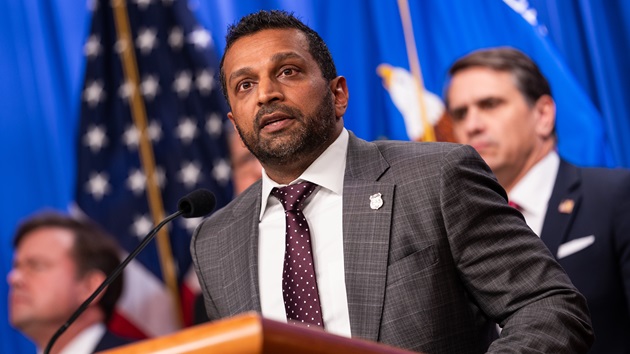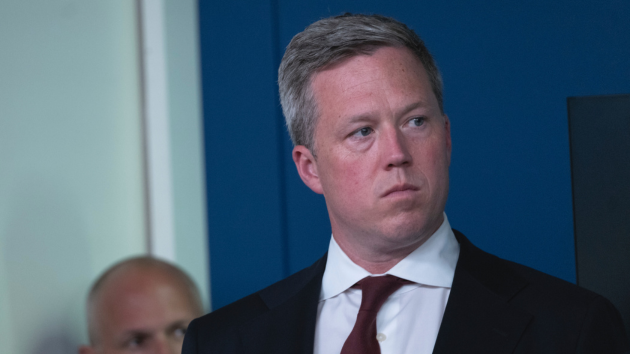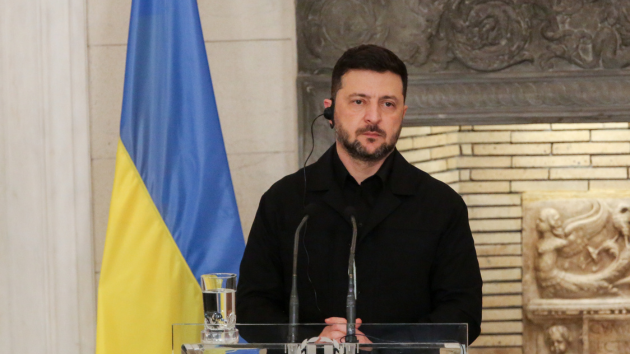Four big takeaways from Day 17 of Trump’s hush money trial
Written by ABC AUDIO ALL RIGHTS RESERVED on May 15, 2024

(NEW YORK) — Across two days of testimony in former President Donald Trump’s criminal hush money trial, former Trump attorney Michael Cohen detailed Donald Trump’s extensive involvement in an alleged scheme to hide negative information about himself from voters in the run-up to the 2016 election.
On Tuesday afternoon, defense lawyers launched their effort to convince jurors to not believe a single word Cohen said.
Cohen’s cross-examination quickly became combative, with defense attorney Todd Blanche highlighting Cohen’s animosity for his former boss, who Cohen has called a “boorish cartoon misogynist,” a “Cheeto-dusted cartoon villain,” and a “dictator douchebag.”
The cross-examination focused on Cohen’s actions and remarks since being released from prison in 2020, leaving the more substantive cross-examination about Cohen’s conduct related to the case for Thursday, when the proceedings resume.
Trump is on trial for allegedly falsifying business records to hide the reimbursement of a hush money payment that Cohen made to adult film actress Stormy Daniels in order to boost Trump’s electoral prospects in the 2016 presidential election. The former president has denied all wrongdoing.
Here are four big takeaways from Day 17 of the trial:
Defense questions Cohen’s motivations
Defense attorney Todd Blanche began an aggressive cross-examination to highlight Cohen’s alleged “obsession” with Trump.
Cohen acknowledged that he often references Trump during media appearances and has made at least $3.4 million from his two books about Trump, as Blanche pushed the suggestion that Cohen has made a living since 2018 profiting from Trump.
Blanche homed in on Cohen’s use of TikTok, referring to ABC News’ initial coverage in his questioning.
“You are also hoping to make money on that?” Blanche asked.
“I do make money on that, but it’s not significant,” Cohen said.
Blanche also highlighted Cohen’s past praise and admiration for Trump.
“You’re actually obsessed with President Trump?” Blanche asked, pursuing a line of inquiry that he drew attention to in the defense’s opening statement.
“I don’t know that I would characterize it as obsessed,” Cohen said. “I can’t recall using that word, but I can’t say it would be wrong.”
Blanche asked if Cohen was “knee-deep in the cult of Donald Trump” when he said flattering things about Trump in the past.
“That’s how I felt,” Cohen said.
“Fair to say you admired President Trump when you were working for him?” Blanche asked.
“Yes sir,” Cohen said.
Cohen recounts White House meeting
Cohen recounted a February 2017 meeting with Trump at the White House where prosecutors allege Trump personally discussed the repayment arrangement for the hush money Cohen had paid to Stormy Daniels.
“So I was sitting with President Trump and asked me if I was OK. He asked me if I needed money. And I said no, all good. He said, ‘I can get a check.’ I said, no I’m OK,” Cohen recounted of the conversation.
“He said all right, just make sure you deal with Allen,” Cohen said, referring to then-Trump Organization CFO Allen Weisselberg.
“Did he say anything about anything that would be forthcoming to you?” prosecutor Susan Hoffinger asked.
“Yes, there would be a check for January and February,” Cohen said, later walking through each of the fraudulent invoices he submitted and checks he received from Trump.
Cohen testified that he last spoke with Trump in April 2018 after the FBI raised Cohen’s office and hotel room.
“I received a phone call from President Trump in response to me leaving a message for him to call,” Cohen said. “I wanted obviously for him to know what was taking place. He said, don’t worry, I am the president of the United States — there is nothing here. Everything is going to be OK. Stay tough. You are going to be OK.”
Cohen said Trump’s statements at the time “reinforced my loyalty and my intention to stay in the fold.”
Cohen describes Trump’s pressure campaign
Cohen told jurors that Donald Trump orchestrated a pressure campaign in 2018 to prevent his cooperation with federal investigators.
“Mr. Trump did not want me to cooperate with the government, certainly not to provide information or flip,” Cohen said.
Jurors saw a series of emails between Cohen and attorney Robert Costello, who told Cohen his representation “would be a great way to have a backchannel of communication to the president in order to ensure you’re still good and still secure,” Cohen testified.
Jurors saw an email where Costello told Cohen, “Sleep well tonight, you have friends in high places.”
“The friend in high places was President Trump,” Cohen testified.
Cohen said he ultimately declined Costello’s offer to represent him, though Cohen said Trump’s message was clear.
“Don’t flip. Don’t speak. Don’t cooperate,” Cohen said.
Cohen tells jurors why he flipped
After spending a decade working for Donald Trump, Cohen testified that in 2018 he decided to begin cooperating with authorities at the urging of his family.
“My family — my wife, my daughter, my son — all said to me, ‘Why are you holding onto this loyalty? What are you doing? We’re supposed to be your first loyalty,” Cohen testified.
“So what decision did you make?” asked prosecutor Susan Hoffinger.
“That it was about time to listen to them,” Cohen said. “To my wife, my son, my daughter, to the country.”
Cohen testified that he pleaded guilty to federal charges in August 2018.
“I would not lie for President Trump any longer,” Cohen said.
While Cohen said he had some “great times” working for the Trump Organization, he testified that regretted many of the things he did on Trump’s behalf.
“I regret doing things for him that I should not have. Lying. Bullying people in order to effectuate a goal,” Cohen said. “But to keep the loyalty and do things that he had asked me to do — I violated my moral compass, and I suffered the penalty, as has my family.”
Copyright © 2024, ABC Audio. All rights reserved.





